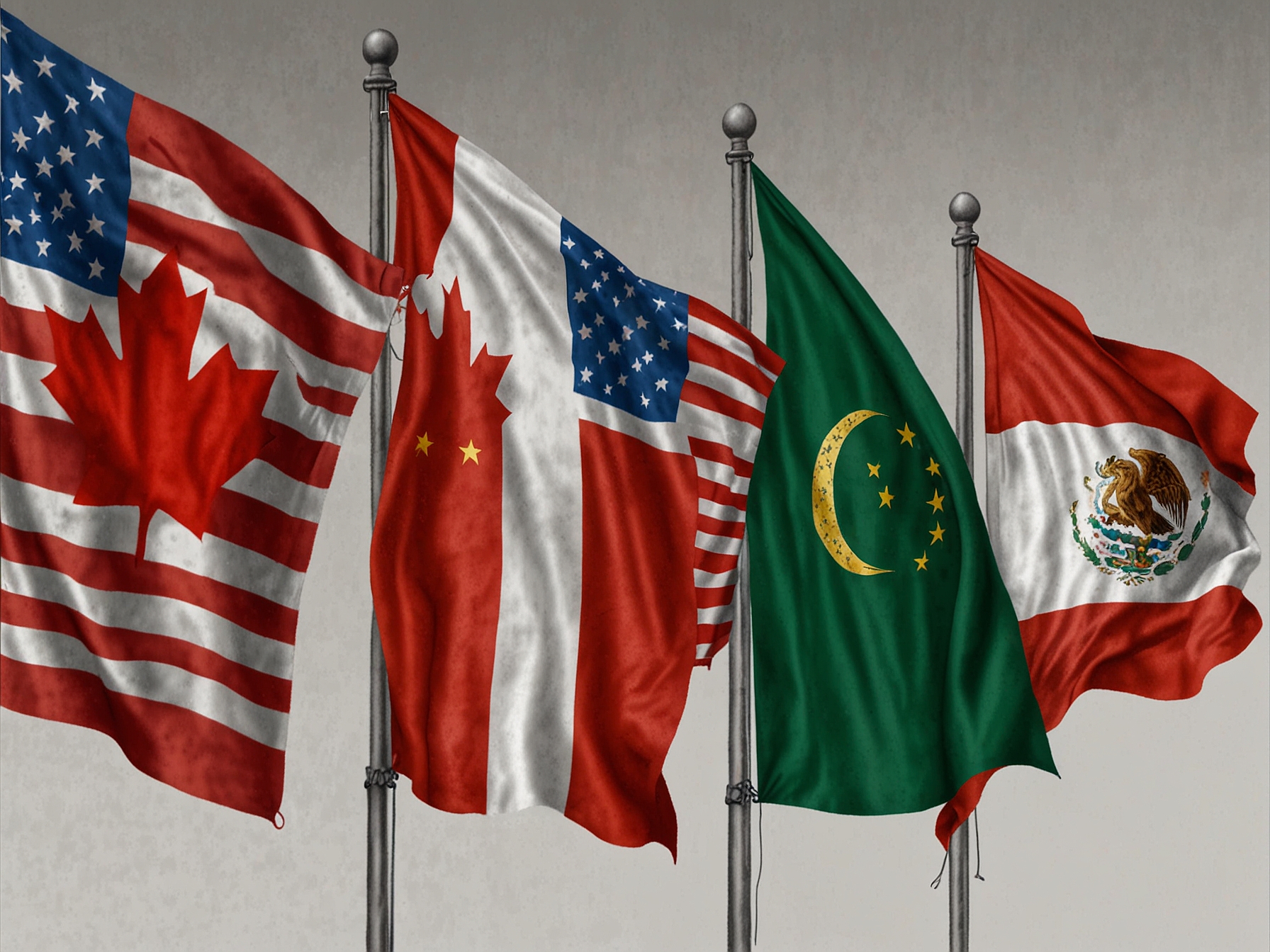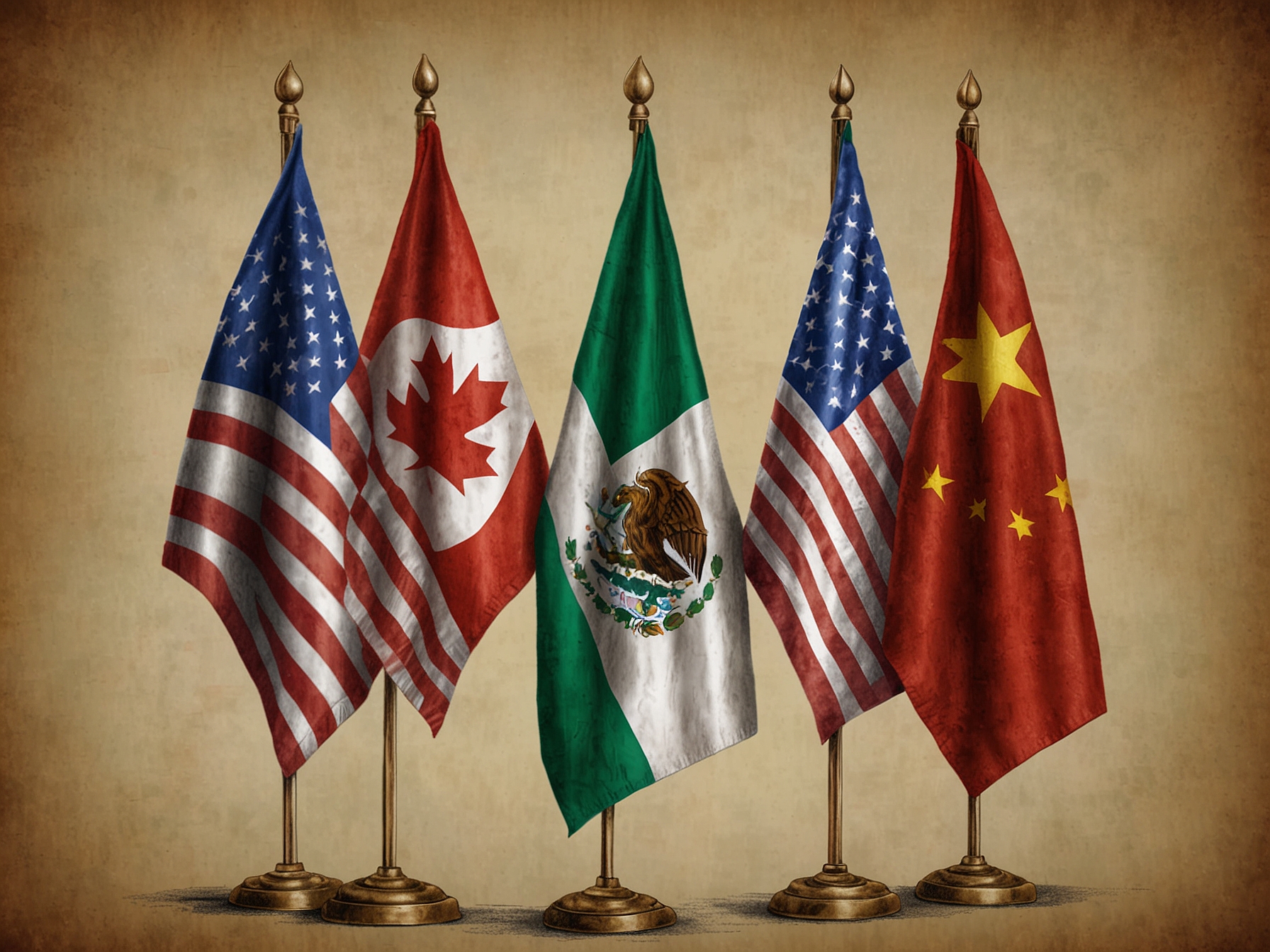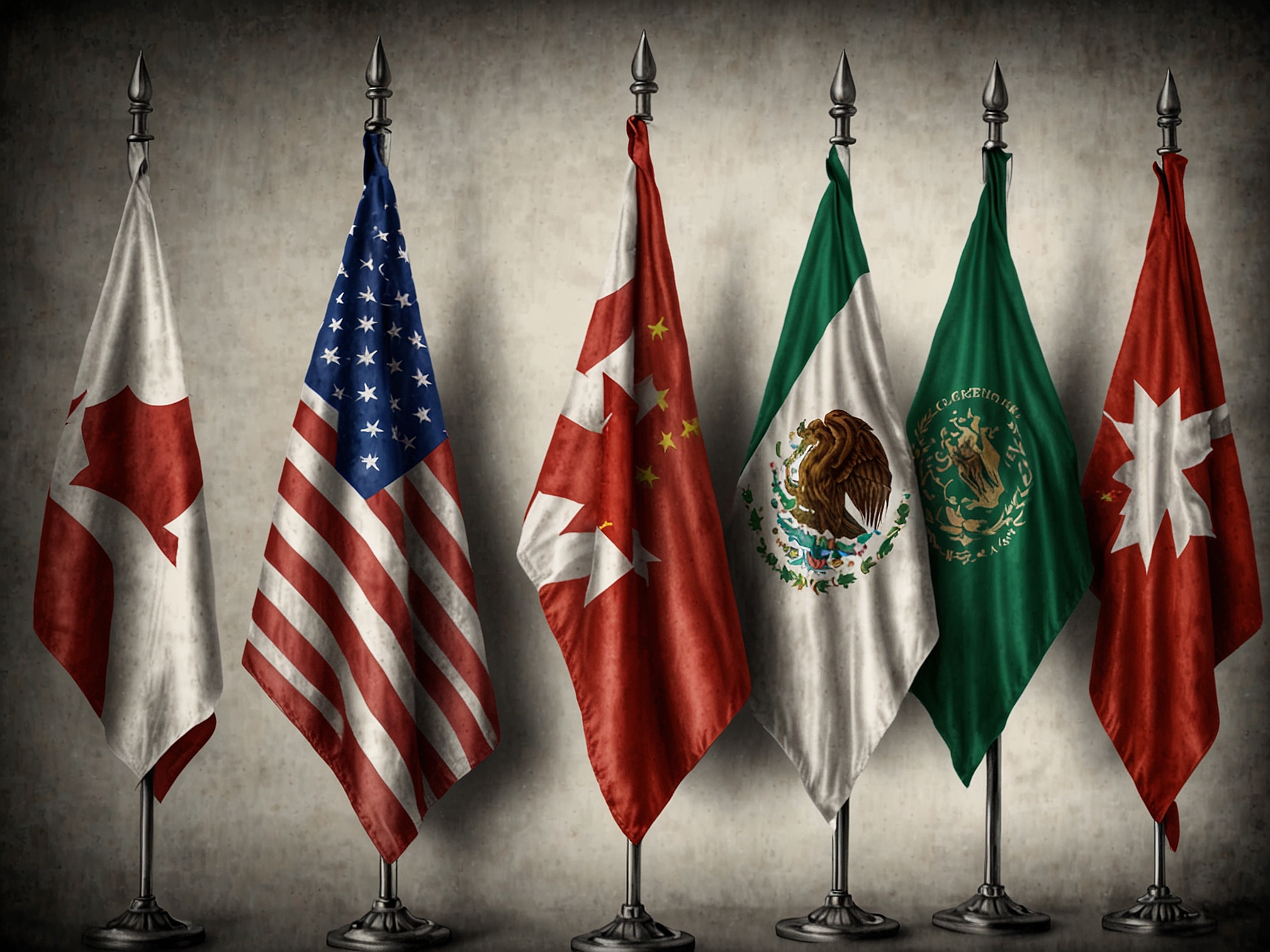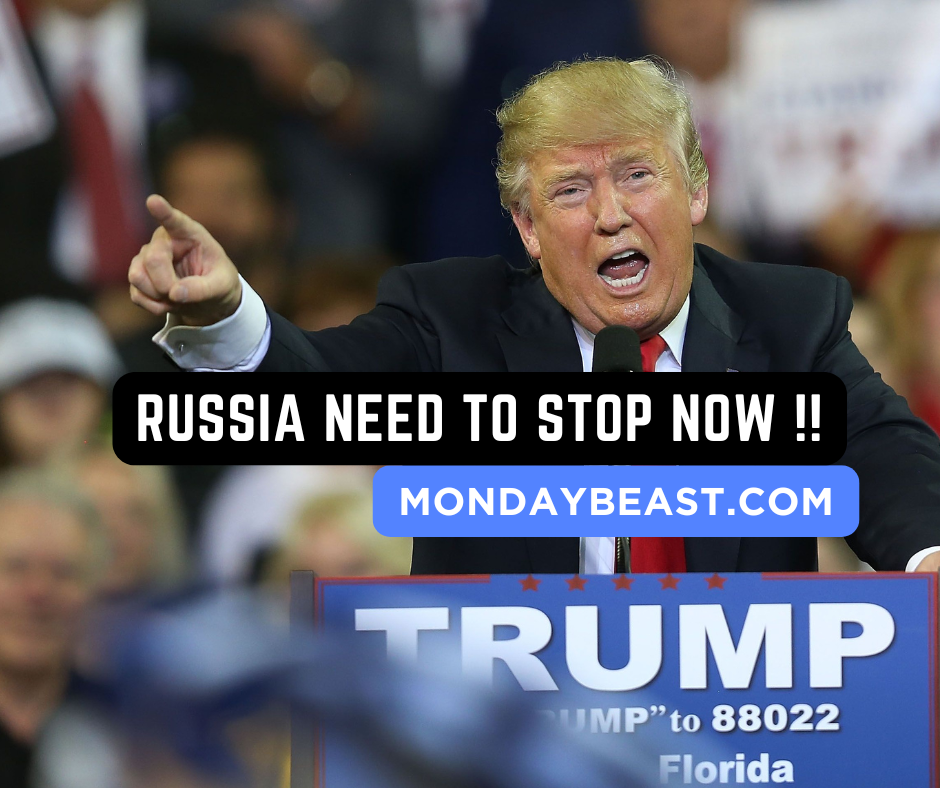In a world already tense with uncertainty, President-elect Donald Trump just raised the stakes. His recent post on Truth Social set off alarms, as he announced his intention to impose heavy tariffs on imports from Canada, Mexico, and China. This isn’t just a political maneuver; it could unleash a wave of economic repercussions.
Many Americans might be wondering, will these tariffs truly address our economic concerns? Or will they simply exacerbate the issues? When Trump spoke about leveraging tariffs to curb the flow of migrants and drugs, he framed it as a solution. Yet, experts are cautioning us to look beyond the headlines.

Keith Rockwell, former head of the World Trade Organization, warned that these actions could spark a trade war. “The U.S. exports hundreds of billions of dollars worth of goods to these countries,” he said, pointing out the risks of retaliation. It’s a domino effect waiting to happen. If one country imposes tariffs, others are likely to strike back.
China has already reacted. Liu Pengyu from the Chinese Embassy issued a stark reminder: “No one wins in a trade war or tariff war.” This statement resonates deeply. There’s a sense of urgency, as if the world is holding its breath, waiting to see how this will unfold.
And what of Canada? Leaders like Deputy Prime Minister Chrystia Freeland are emphasizing the importance of a balanced economic relationship. Just days after Trump’s announcement, Prime Minister Justin Trudeau called for an emergency meeting with provincial premiers. It’s clear that Canadian officials are preparing for a potential fallout.

But let’s look at the numbers. Economists from ING predict that Trump’s tariffs could cost American consumers as much as $2,400 annually. This could make everyday goods more expensive. The question arises: is this a price we’re willing to pay for perceived security?
Indeed, many voters seem skeptical. A Guardian poll revealed that 69% of respondents believe tariffs will only increase prices for everyday goods. Oddly, Trump, who once called tariffs “the most beautiful word in the dictionary,” now faces backlash from within his own ranks.
In a strange twist, these tariffs are not merely an economic tool but a multi-purpose instrument in Trump’s arsenal. Some supporters, like billionaire Bill Ackman, see them as a way to achieve political goals. Ackman went as far as to claim that Trump will use tariffs to further his “America First” strategy. It’s a complex and multifaceted approach, raising more questions than it answers.

Moreover, analysts like Eswar Prasad have pointed out that tariffs could usher in a new era of protectionism. This could significantly impact both U.S. and international trade. The uncertainty over future tariffs leaves economists and market participants worried. How will countries navigate this new landscape?
History shows us the potential repercussions of trade wars. During Trump’s previous administration, the European Union retaliated with sanctions aimed at iconic American products like Kentucky bourbon and Levi’s jeans. Such targeted actions rendered a poignant reminder of the personal stakes involved in these economic decisions.
Reflecting on all of this, one must wonder: is the U.S. truly prepared for the fallout? These measures could lead to strained relations and uncertainty. The balance between national security and economic stability hangs in the balance.
As the dust settles, we should be vigilant observers. The implications of Trump’s tariff threats ripple through economies, affecting millions. The stakes have never been higher, and it’s essential to stay informed about the potential consequences for our futures.




